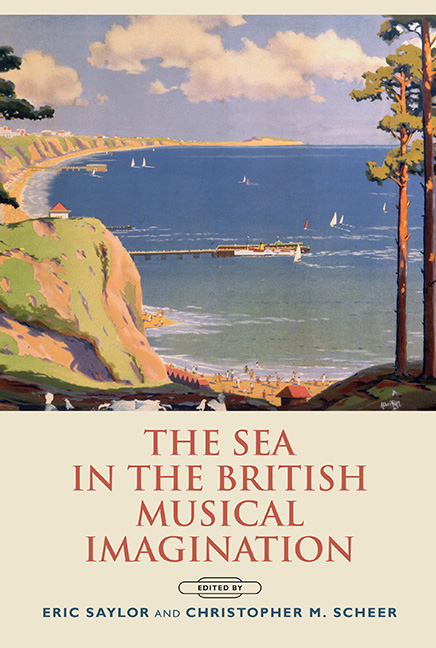Afterword : Channelling the Swaying Sound of the Sea
Published online by Cambridge University Press: 12 June 2021
Summary
Look, stranger, on this island now The leaping light for your delight discovers, Stand stable here And silent be, That through the channels of the ear May wander like a river The swaying sound of the sea.
W. H. Auden, from On This Island (1937)AUDEN INVITES the observer, a stranger, to gaze upon a defining element of the British Isles. ‘The leaping light for your delight discovers’ – the sounds of the sea delineating the island's borders. Just stop, stand still, and listen, listen through the channels of the ear to the swaying sound of the sea. The poet continues to conjure up these liminal sounds, utilizing evocative images and onomatopoetic words: ‘Here at a small field's ending pause / Where the chalk wall falls to the foam and its tall ledges / Oppose the pluck / And knock of the tide, / And the shingle scrambles after the suck- / -ing surf, and a gull lodges / A moment on its sheer side.’ Thus, in a few words, Auden sketches both a landscape and, more importantly, its associated soundscape as an introduction for any stranger unfamiliar with a fundamental aspect of British life. He points to the inherent role of the sea in British experience, emphasizing particularly the sounds of the sea, the winds, and marine life, in all their manifestations, which are ever-present aspects of life on this island.
This desire of the British artist to engage with the crucial role that the sea has played in British life is fundamental. The interrelationships between human existence and the power of the sea have long been established as the basis of many celebrated and distinguished bodies of work in the visual arts, literature, and film, such as J. M. W. Turner's many extraordinary seascapes, the role of the sea and sea voyages in many writings of Robert Louis Stevenson, and many of Ealing Studio's films, such as the highly successful The Cruel Sea (1953). Given the sensations of sea sounds that, as Auden points out, are intrinsic to the British experience, it is self-evident that British composers and musicians would also engage with the sea in their sonically driven creative worlds.
- Type
- Chapter
- Information
- The Sea in the British Musical Imagination , pp. 267 - 278Publisher: Boydell & BrewerPrint publication year: 2015

